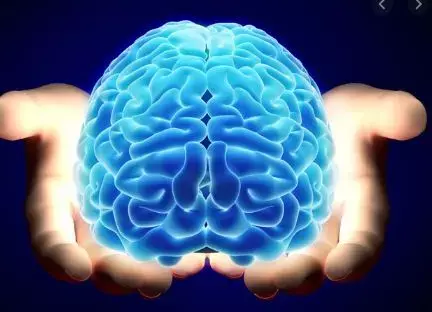- Home
- Medical news & Guidelines
- Anesthesiology
- Cardiology and CTVS
- Critical Care
- Dentistry
- Dermatology
- Diabetes and Endocrinology
- ENT
- Gastroenterology
- Medicine
- Nephrology
- Neurology
- Obstretics-Gynaecology
- Oncology
- Ophthalmology
- Orthopaedics
- Pediatrics-Neonatology
- Psychiatry
- Pulmonology
- Radiology
- Surgery
- Urology
- Laboratory Medicine
- Diet
- Nursing
- Paramedical
- Physiotherapy
- Health news
- Fact Check
- Bone Health Fact Check
- Brain Health Fact Check
- Cancer Related Fact Check
- Child Care Fact Check
- Dental and oral health fact check
- Diabetes and metabolic health fact check
- Diet and Nutrition Fact Check
- Eye and ENT Care Fact Check
- Fitness fact check
- Gut health fact check
- Heart health fact check
- Kidney health fact check
- Medical education fact check
- Men's health fact check
- Respiratory fact check
- Skin and hair care fact check
- Vaccine and Immunization fact check
- Women's health fact check
- AYUSH
- State News
- Andaman and Nicobar Islands
- Andhra Pradesh
- Arunachal Pradesh
- Assam
- Bihar
- Chandigarh
- Chattisgarh
- Dadra and Nagar Haveli
- Daman and Diu
- Delhi
- Goa
- Gujarat
- Haryana
- Himachal Pradesh
- Jammu & Kashmir
- Jharkhand
- Karnataka
- Kerala
- Ladakh
- Lakshadweep
- Madhya Pradesh
- Maharashtra
- Manipur
- Meghalaya
- Mizoram
- Nagaland
- Odisha
- Puducherry
- Punjab
- Rajasthan
- Sikkim
- Tamil Nadu
- Telangana
- Tripura
- Uttar Pradesh
- Uttrakhand
- West Bengal
- Medical Education
- Industry
Brain MRI of Covid 19 patients related to presence of virus in CSF: Study

The presence of CNS hyperintense lesions or leptomeningeal enhancement on neuroimaging from patients with COVID-19 is associated with increased likelihood of a positive CSF SARS-CoV-2 PCR, suggests findings from a recent study published in Journal of Neuroimaging . However, the research team further elaborated that s a positive CSF SARS-CoV-2 PCR is uncommon in patients with these neuroimaging findings, suggesting they are often related to other etiologies, such as inflammation, hypoxia, or ischemia.
Patients with coronavirus disease 2019 (COVID-19) who have neurological symptoms often have central nervous system (CNS) hyperintense lesions and/or leptomeningeal enhancement on neuroimaging.Postulated mechanisms for these findings include ischemia, inflammation, anoxia, and viral neuroinvasion. Cerebrospinal fluid (CSF) testing is one means to evaluate for viral neuroinvasion via (1) the severe acute respiratory syndrome associated coronavirus 2 (SARS-CoV-2) polymerase chain reaction (PCR) assay or (2) testing for intrathecal SARS-CoV-2 antibody production.
For the current study, researchers reviewed the literature to evaluate cerebrospinal fluid (CSF) results from patients with coronavirus disease 2019 (COVID-19) who had neurological symptoms and had an MRI that showed (1) central nervous system (CNS) hyperintense lesions not attributed to ischemia and/or (2) leptomeningeal enhancement. The team sought to determine if these findings were associated with a positive CSF severe acute respiratory syndrome associated coronavirus 2 (SARS-CoV-2) polymerase chain reaction (PCR).
They performed a systematic review of Medline and Embase from December 1, 2019 to November 18, 2020. CSF results were evaluated based on the presence/absence of (1) ≥ 1 CNS hyperintense lesion and (2) leptomeningeal enhancement.
Results highlighted the following facts.
- In 117 publications, we identified 193 patients with COVID-19 who had an MRI of the CNS and CSF testing.
- There were 125 (65%) patients with CNS hyperintense lesions. Patients with CNS hyperintense lesions were significantly more likely to have a positive CSF SARS-CoV-2 PCR (10% [9/87] vs. 0% [0/43], p = 0.029).
- Of 75 patients who had a contrast MRI, there were 20 (27%) patients who had leptomeningeal enhancement.
- Patients with leptomeningeal enhancement were significantly more likely to have a positive CSF SARS-CoV-2 PCR (25% [4/16] vs. 5% [2/42], p = 0.024).
"Based on this meta-analysis of data obtained from 193 patients withCOVID-19 described in the literature who had an MRI brain and/orspine and CSF testing as workup for neurologic symptoms, we found that the presence of CNS hyperintense lesions or leptomeningealenhancement on neuroimaging is associated with increased likelihoodof a positive CSF SARS-CoV-2 PCR. However, most patients withCOVID-19 who have CNS hyperintense lesions or leptomeningealenhancement do not have evidence of SARS-CoV-2 in the CSF, suggest-ing that these findings are the result of other processes, such as inflam-mation, hypoxia, or ischemia. The etiology for these i maging findingsshould be explored further via neuropathology studies."the team concluded.
For full article follow the link: https://doi.org/10.1111/jon.12880
Source:Journal of Neuroimaging
Dr Satabdi Saha (BDS, MDS) is a practicing pediatric dentist with a keen interest in new medical researches and updates. She has completed her BDS from North Bengal Dental College ,Darjeeling. Then she went on to secure an ALL INDIA NEET PG rank and completed her MDS from the first dental college in the country – Dr R. Ahmed Dental College and Hospital. She is currently attached to The Marwari Relief Society Hospital as a consultant along with private practice of 2 years. She has published scientific papers in national and international journals. Her strong passion of sharing knowledge with the medical fraternity has motivated her to be a part of Medical Dialogues.
Dr Kamal Kant Kohli-MBBS, DTCD- a chest specialist with more than 30 years of practice and a flair for writing clinical articles, Dr Kamal Kant Kohli joined Medical Dialogues as a Chief Editor of Medical News. Besides writing articles, as an editor, he proofreads and verifies all the medical content published on Medical Dialogues including those coming from journals, studies,medical conferences,guidelines etc. Email: drkohli@medicaldialogues.in. Contact no. 011-43720751


